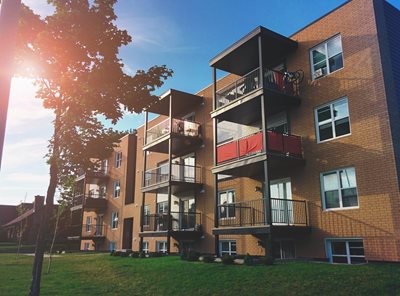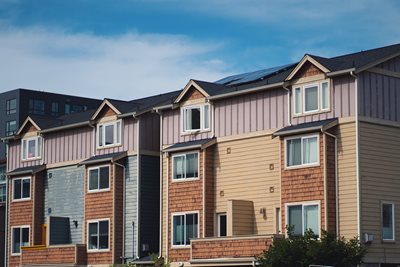Everything You Need to Know About Unenforceable HOA Rules
Webinar: How to be a Good Neighbor: Effective Communication of Rules Enforcement
Article Index
It’s important to understand HOA rules, but knowing unenforceable HOA rules is just as important. While rules are meant to keep the community safe clean, and pleasant, some associations implement rules that are unreasonable — and downright illegal.
Homeowners associations must keep in mind that although they have the ability to enforce rules, that authority has limits and not all rules are enforceable. In fact, knowing which rules a board has the power to enforce and which ones they don’t, can also impact board budget reporting.
For some helpful hints on board budgeting and how to ensure accurate financial reporting, watch the video above!
HOA rules bind residents, boards and property management companies through specific policies and concrete policies. As the leader in the property management industry, FirstService Residential is committed to helping you board members familiarize themselves with these community management, high-rise and HOA ordinances to better protect and serve your community.
As a board member, it is imperative for board members to stay aligned and keep HOA ordinances and regulations in mind when creating the goals and vision of a community.
About HOA Rules

In order to understand what unenforceable homeowners association (HOA) rules are, it’s important to first be familiar with HOA rules in general. Essentially, HOA rules or covenants are policies that are implemented within a neighborhood or community. HOA rules are put in place to preserve property values and to regulate the behavior of residents.
HOA rules vary depending on the community. The exact rules can be found within the association’s Covenants, Conditions, and Restrictions (CC&Rs) and apply to every member of the community — including homeowners and tenants. In a nutshell, HOA rules dictate what homeowners can and cannot do.
What Exactly Are Unenforceable HOA Rules
Although an HOA has the authority to enforce CC&Rs, certain rules are unenforceable. Unenforceable HOA rules are those that go against the law. HOAs cannot create covenants that are contrary to federal and state laws. In addition, unenforceable HOA rules may be defined as rules that are:
Enforced selectively
When an HOA enforces rules inconsistently, it may be held liable for violating the Fair Housing Act (FHA). For instance, if an HOA fines a certain protected class but not others, they may be charged with discrimination.
Inconsistent enforcement also applies to rules that are in force but not applied. For example, if an HOA has rules against colored fences but has not enforced the rule in over 10 years, they may have a difficult time penalizing those who have painted their fences within those 10 years.
Against the law
HOA rules should always complement federal and state laws. Hence, an HOA cannot create CC&Rs that violate or breach the law. Below are some important items to know and understand when it comes to the legal parameters around HOA laws and regulations.
-
Discrimination: The FHA prohibits discrimination in housing. Hence, an HOA cannot discriminate against homeowners based on their color, disability, familial status, national origin, race, religion and sex. It’s worth mentioning that some states have expanded the list of protected classes. For instance, in California, they have laws that prevent discrimination on the basis of someone’s gender identity
-
Right to Bear Arms: Less legal authority exists regarding whether homeowners’ associations can limit the Second Amendment right to bear arms, as compared to cases involving freedom of speech or religion. The general rule appears to be that, while HOAs have authority to enforce validly enacted restrictions on firearms or other weapons in open areas, courts will not enforce blanket restrictions that completely prohibit gun ownership by residents. See, e.g., District of Columbia v. Heller, 554 U.S. 570 (2008). Whereas the First Amendment expressly limits actions by Congress, the Second Amendment is written in the passive voice (“Congress shall pass no law…” versus “…the right of the people to keep and bear Arms, shall not be infringed."). Thus, the amendment can be viewed as stating a strong public policy preference in favor of protecting citizens’ right to own firearms, regardless of who may wish to infringe upon that right.
-
Satellite Dishes and Antennas: Thanks to the Over-the-Air Reception Devices (OTARD) Rule, HOAs cannot prevent residents from installing satellite dishes or antennas. It basically means that an HOA can’t stop you from watching television. There are, however, some exceptions to the OTARD Rule. An HOA may supplement the rule by prohibiting satellite dishes of a certain size, for instance, those that exceed one meter in diameter. An HOA may also limit where the devices can be installed in order to preserve the historical architecture of the community.
-
Freedom of Speech: HOAs can’t prohibit their members from expressing their political views. In many states, associations don’t have the power to prevent homeowners from putting up political signs especially during elections. The most they can do is to limit where and when they can post their signs. For instance, an HOA can restrict residents from putting up signs that may affect the community’s curb appeal.
- Clotheslines: Yes, there are state laws on clotheslines! It may seem silly but many states — such as Maryland, Florida, and Colorado — have made it illegal for associations to ban residents from drying their clothes outside. However, this “right to dry” law does offer an HOA room to impose restrictions regarding the size and location of the clothesline. For example, an HOA may require clotheslines to not be higher than the fence so as not to affect the neighborhood’s aesthetics.
- Other HOA Laws: There are hundreds of federal and state laws that HOAs have to abide by. If you’re establishing an HOA, you may want to look into laws such as the Servicemembers Civil Relief Act, Freedom to Display the American Flag Act, American Clean Energy and Security Act, and much more. To make sure you’re not stepping on any laws, it’s best to hire a property management company.
Enacted Incorrectly
An HOA can’t enact laws whenever it wants to. Associations need to follow proper procedures when introducing or amending rules and regulations.
For example, many HOAs require members to vote on rules. If a rule doesn’t receive the majority vote, it may be unenforceable. Similarly, some states require HOAs to register their rules with the Land Records office. Failure to do so would render the rules inapplicable.
Enforce With No Authority
As always, the HOA is governed by federal and state laws. It cannot overstep the boundaries.
HOAs have a limited amount of authority. Although a community association can fine its members, it can’t impose a fine without a valid cause. An association may fine a resident for violating the CC&Rs but it cannot fine you simply because it has the power to do so, for example.
Pro Tip: At FirstService Residential, we understand the importance of effective communication with residents – especially when it comes to sharing information related to enforceable and unenforceable HOA policies. Read this article to supercharge your HOA communications!
Homeowner Recourse

If formal action is necessary, homeowners have standing to challenge HOA covenants in state court, typically in the county in which the community is located. If the improper covenant or enforcement thereof violates the FHA, the homeowner can file suit in federal district court or file an administrative housing complaint with the Department of Housing and Urban Development’s Office of Fair Housing and Equal Opportunity. In states that favor pre-suit mediation, an impartial opinion from an experienced mediator can sometimes convince an HOA board to reassess an untenable position and forego further enforcement.
The options available to a homeowner facing HOA enforcement of an improper covenant—or a homeowner singled out for inconsistent enforcement—vary between states and based upon the nature of the covenant in question. In appropriate cases, it may be worth speaking with the board about the issues before taking any formal legal action. A well-written letter from a homeowner (or homeowner’s attorney) expressing valid concerns about the validity of a restriction or the board’s enforcement may be sufficient to change the board’s analysis.
If legal action proves necessary, or if the association has already instituted legal proceedings, it’s almost always a good idea to consult with an experienced attorney. An attorney familiar with the relevant state’s HOA laws will be able to evaluate the merits of the association’s position and the homeowner’s available defenses. Counsel can also provide valuable advice on important issues like statutes of limitations, potential alternate claims and defenses, and the merits of seeking a negotiated compromise versus pursuing litigation.
It’s worth noting that state HOA statutes and community declarations often include “fee-shifting” provisions requiring a losing party to reimburse the prevailing party’s legal fees in suits involving enforcement of covenants. In Ritter & Ritter v. Churchill Condominium Assn., 166 Cal.App.4th 103, a case from 2008 involving secondhand smoke, a court in California ordered an association to pay over $500,000 of a member’s attorney’s fees. Litigation is notoriously expensive, but fee-shifting provisions can defray some or all of the cost of defending against an HOA’s attempt to enforce an unenforceable covenant.
Get In Touch
Community associations should not have unenforceable HOA rules, otherwise, they may find themselves in legal trouble. To ensure that the rules complement the law, board members should consult HOA management companies.
Connect with FirstService Residential. Our team has been managing multi-family properties, such as condominiums and apartments, for over ten years. We can help you establish an HOA and create CC&Rs that conform with existing laws. With our in-house team of attorneys, we’ll make sure that your HOA rules are always enforceable.